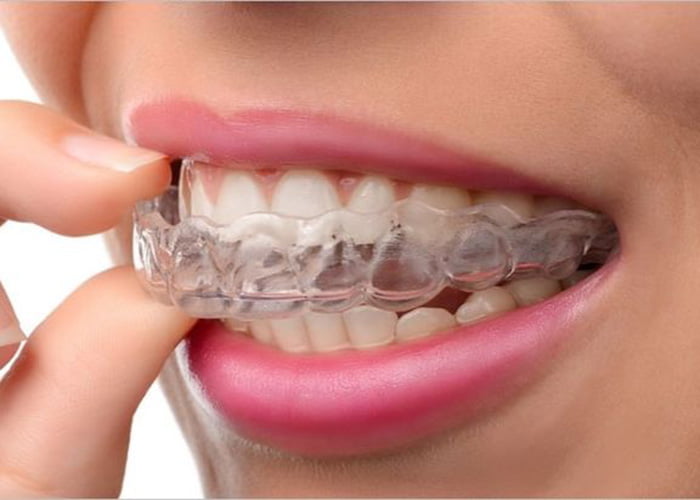Waking up with a sore jaw, tooth pain, or a headache is no fun. These are common symptoms of bruxism, also known as teeth grinding. 10-15 percent of adults, according to the American Dental Association, struggle with bruxism, and that’s not including children who grind their teeth. Bruxism can be hard to control and stop since it happens while we sleep, but one way to protect your teeth from the damaging effects of grinding is to wear a night guard.
What is Teeth Grinding?
Teeth grinding, also known as bruxism, is a condition that affects millions of people worldwide. Signs and symptoms of teeth grinding include damaged or worn down teeth, sore jaw muscles, headaches, earaches and sleep-related issues. But what exactly causes this condition?
The exact cause of teeth grinding is not fully understood yet, but research suggests it could be caused by stress or anxiety. In some cases, it may also be related to malocclusion (a misalignment of the upper and lower teeth) or an abnormal bite. It can even be associated with certain medical conditions such as Parkinson’s disease or epilepsy. Other potential causes include alcohol consumption, smoking cigarettes and caffeine intake.
No matter the cause behind your teeth grinding habit, it’s important to seek treatment in order to protect your oral health from further damage.
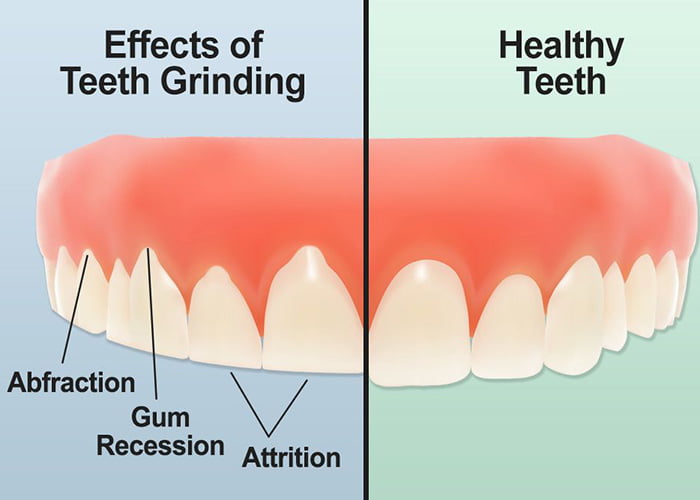
What is a Night Guard?
Night guards are an important part of oral health care. They are oral appliances that protect your teeth from external damage, such as chipping and erosion, caused by grinding and clenching. They provide a cushioning effect so that the upper and lower teeth don’t wear away as they rub against each other, but they do not stop the grinding which means symptoms, like jaw pain, may continue.
Benefits of Night Guards
A night guard fits over the upper or lower set of teeth while you sleep. It acts as a physical barrier between the top and bottom sets of teeth to prevent them from touching while you’re asleep. It also helps keep the jaw in place to reduce tension in facial muscles and joints caused by clenching or grinding during the night.
Types of Night Guards
There are several different types of night guards available to choose from: hard, medium, and soft, depending on your needs and lifestyle.
The most common type of night guard is a ready-made device that can be purchased over the counter at a pharmacy or online. It’s designed to fit most people and comes in two varieties: soft and hard plastic. Soft night guards are more comfortable but less durable than hard plastic ones; they also need to be replaced more often as they tend to wear out faster due to their softer material. Hard plastic night guards last longer but may not provide the same level of comfort as softer ones.
Custom-fitted night guards are another option for those who want maximum protection while they sleep.
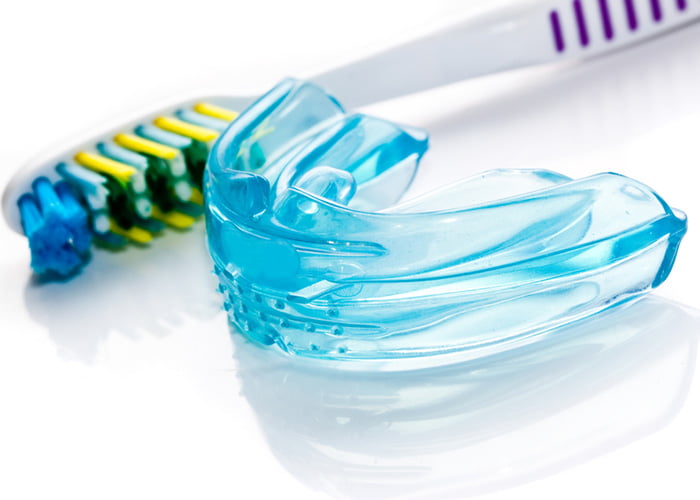
Can Retainers be Used as Night Guards?
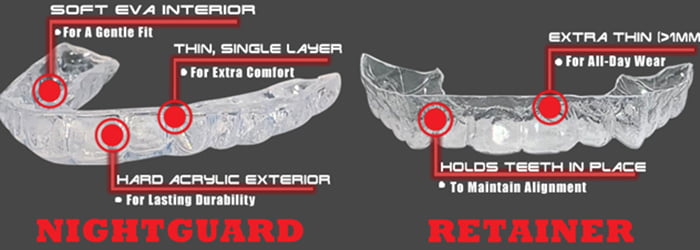
Source: Gladiator Custom Mouthguards
While hard night guards and retainers may look alike, they are not interchangeable. Never use a normal retainer as a night guard, because it doesn’t have the necessary thickness to withstand the pressure of grinding. Also, avoid using night guards as retainers.
How to Choose a Night Guard
Having a night guard is an important preventative measure for many people to ensure healthy teeth and gums. If you are considering purchasing a night guard, there are several factors to consider when choosing the right one for your mouth.
First, it’s important to determine whether you need an over-the-counter product or a custom fit guard from your dentist. Over-the-counter guards come in preformed sizes and shapes, so they may not offer the best protection for your specific jaw structure. A trip to the dentist will help provide a customized fit that creates more comfort while sleeping and protects all areas of the mouth.
When selecting either type of guard, be sure to choose one with good quality materials that can withstand wear and tear and still be comfortable enough for sleeping.
Where can I Get a Night Guard?
The best place to get a custom, proper-fitting night guard that will not damage your teeth or soft tissue is from your dentist. Expertly designed night guards are made in a laboratory from an impression of your teeth taken by dental professionals which ensure comfort and quality. Schedule your appointment today!
Cleaning and Storing Your Night Guard
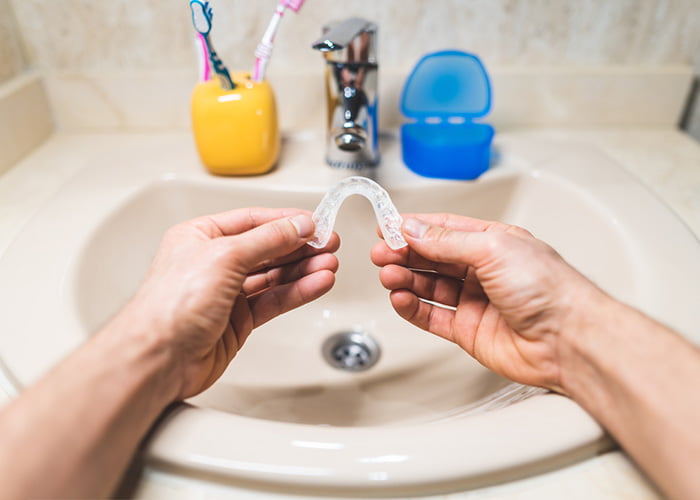
It’s important to clean and store your night guard correctly to keep it in good shape. Always rinse it after you take it out, and then brush it with your soft bristled toothbrush (but not with toothpaste). This will help prevent bacteria buildup and ensure that your guard remains hygienic. In order to prevent bacterial growth, give it time to air dry before placing it in its case or leave it on your nightstand instead of in the bathroom. This helps minimize dirt accumulation while also protecting the material of the guard itself. Additionally, avoid using very hot water when cleaning your device; this could cause warping which affects its fit and function.
Ask Us About a Night Guard
If you think you might have bruxism, come talk to us about it right away. We will fit you with a night guard as well as discuss other methods of reducing symptoms, such as lowering stress levels and receiving orthodontist treatment if misaligned teeth are a contributing factor.
See Dentist For Life
Looking for an experienced and trusted dentist in Marysville, Ohio? Look no further than Dentist For Life! We provide comprehensive dental care for patients of all ages. We take a wide variety of insurance plans and are currently accepting new patients. You can reach us at (937) 707-1111 or schedule your appointment online here.

